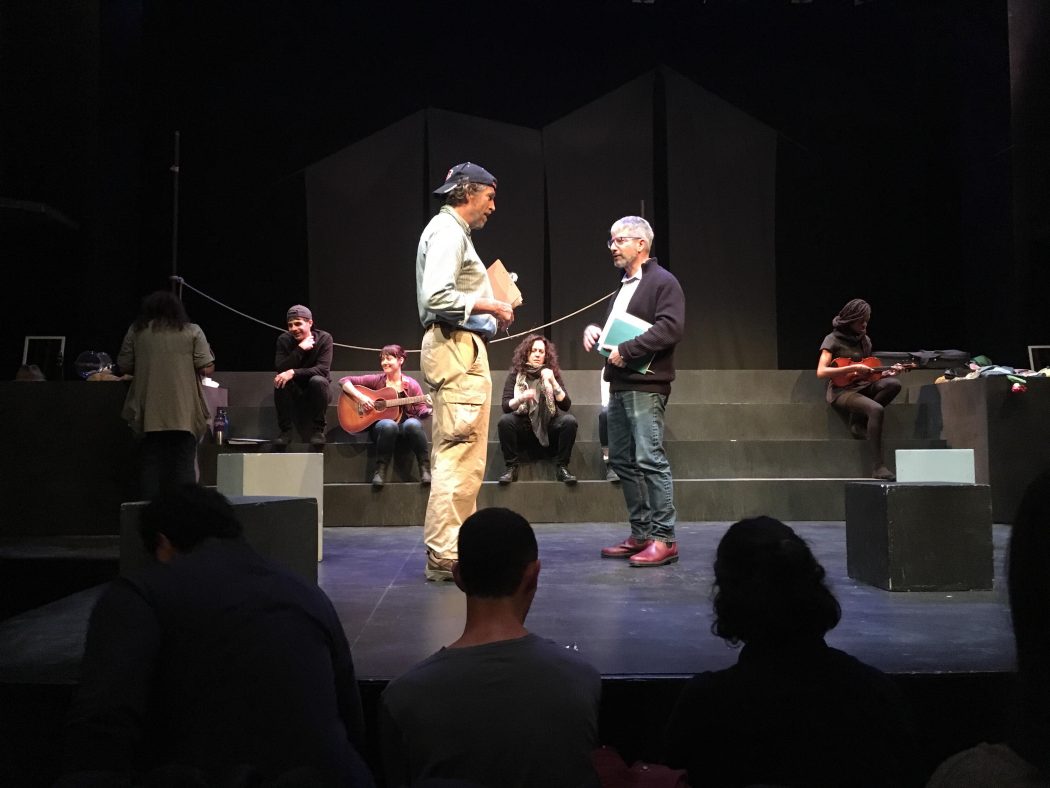It is a clear Friday morning in Montreal, and the sun is out for the first time in several days. It beams cheerfully through my window and onto my kitchen table, where I am having a minor panic attack, anxiously mulling over the dubious etiquette of phone interviews. Is calling the subject of your interview a few minutes early proper form, just as arriving a few minutes early to a meeting would be? Perhaps not, since both parties will be remaining in the comfort of their homes, and thus might count on having until the scheduled time to prepare for the interview, finish their coffee, or enjoy a couple extra minutes of sleep. Maybe calling exactly on time is the correct course of action, then. Although isn’t that slightly neurotic? Alright, so I’ll call a few minutes past 10am, the agreed upon interview time, to give my interviewee the opportunity to settle in to wherever he has chosen to take the call – but then what if he thinks that I’m rude or disorganized? I watch, for the third or fourth time, a 30-second video clip of director Guy Sprung that was included in the press packs sent out to the media. In the brief video, Sprung talks confidently and passionately about his upcoming production, Shakespeare’s Sonnets: Transforming the Voices of Montréal, all wiry grey hair and charisma. He looks incredibly intimidating. I call him at exactly 9:59am. (Seriously, watch this and tell me you wouldn’t have been nervous to speak to that man, too).
Guy Sprung is a McGill alumnus, and currently the Artistic Director of Infinithéâtre in Montreal. Sprung has had an illustrious and far reaching career. He was Players’ Club President for the 1968-1969 school year, and shortly after his graduation he founded the Half Moon Theatre in London, England, of which he was the first Artistic Director, and which continues to thrive today. He is the founder of “Shakespeare in High Park,” an annual Shakespeare festival in Toronto that is Canada’s longest running outdoor theatre experience, and averages 50,000 spectators a year. Sprung is also co-founder of the Canadian Stage Company, the largest not-for-profit contemporary theatre company in Canada.
From October 22nd to 27th Moyse Hall, located in McGill’s Arts building, will be home to Shakespeare’s Sonnets: Transforming the Voices of Montréal, presented by the McGill Department of English in collaboration with Early Modern Conversions Project. The show is comprised of a selection of 30 Shakespearean sonnets, each one made contemporary, urban, and conversational through the efforts of director Guy Sprung and his talented cast. But how, on earth, does one make a 400-year-old Elizabethan sonnet contemporary, urban, and conversational? As Sprung explains, “we look at an individual sonnet and we try to find a specific human being in a specific situation, saying those words in a modern context in Montreal.” For instance, actor Carmen Grant will perform Sonnet 29 as a young homeless woman living on the streets of Montreal, speaking to her unborn child. Other selected sonnets are staged in many varying and surprising ways, including as lectures by sexologists, as the reprisals of a caring grandmother, and as a country/blues song (which I will personally vouch for as being both catchy and remarkably congruous). The supplanting of Shakespeare’s words in sometimes jarringly 21st Century contexts underscores the universality of the themes he wrote on. However, the production is not aiming to be an academic contemplation of the poet’s works. If fact, the play makes use of extensive mask work, which Sprung says, “allows us to approach [the sonnets] with instinct and irrationality, as opposed to an academic point of view.”
Mask work is essential to this production, and the masks used in this piece were originally created for the Royal Shakespeare Company in the 1950s. They are inspired by pictures of real British citizens taken from newspapers. In an interactive seminar held the week before the play’s run, the cast and a McGill Graduate Level Sonnets Class taught by Professor Paul Yachnin gathered together in Moyse Hall. The actors spoke about their experiences with mask work and demonstrated the process of “becoming a mask”. It is a ritualistic, almost meditative, and sometimes deeply intimate experience. The actor first selects (or, depending on who you ask, is selected by) a mask. They breathe out as they hold the mask in front of them, bring the mask to their face and slip the cord over their head, and finally breathe deeply in. The masks allow actors to access their instinct, which facilitates improvisation and the creation of characters. As Sprung describes it, the masks allow a person to lose the rational so as to find the irrational, and then see the big picture. In Shakespeare’s Sonnets, they facilitate the actors’ work in bridging the gap between words written centuries ago and modern life.
As we wrapped up our Friday morning conversation, I asked Mr. Sprung a final question: what did he hope audiences would take away from his play? Mr. Sprung gave an unexpected chuckle and replied, “The sonnets, they’re what we’re told, ‘Okay, this is the greatest poetry in the history of the English language,’ and everybody says, ‘Oh yeah, they’re amazing, they’re great, the greatest love poems’ – and nobody has read them. […] What we’re trying to do, what the takeaway should be is, ‘Oh my god, these things are actually totally comprehensible, they’re as easy to understand as your latest rock video, and as entertaining’.”
Shakespeare’s Sonnets: Transforming the Voices of Montréal will run from Monday, October 22nd to Saturday, October 27th. Showtime is 8pm, including a Saturday matinée at 2pm.
Tickets are only $10 for McGill students. Just use code “McGill” when purchasing online (student ID will be checked at the door).
Tickets are $20 for McGill alumni. Use code “Alumni”.
Buy your tickets HERE.








